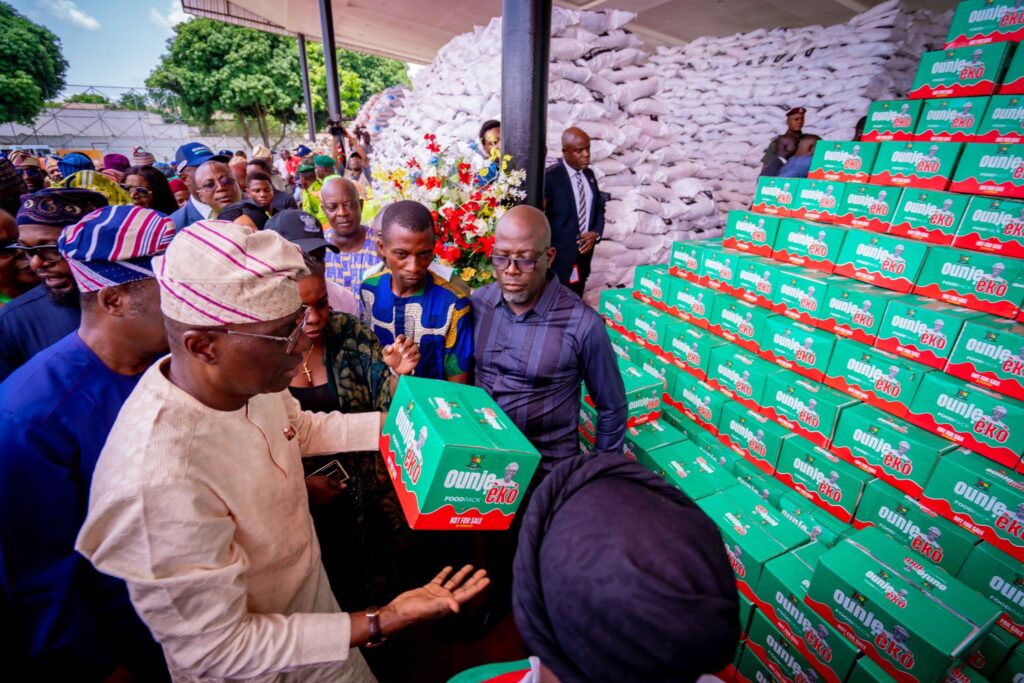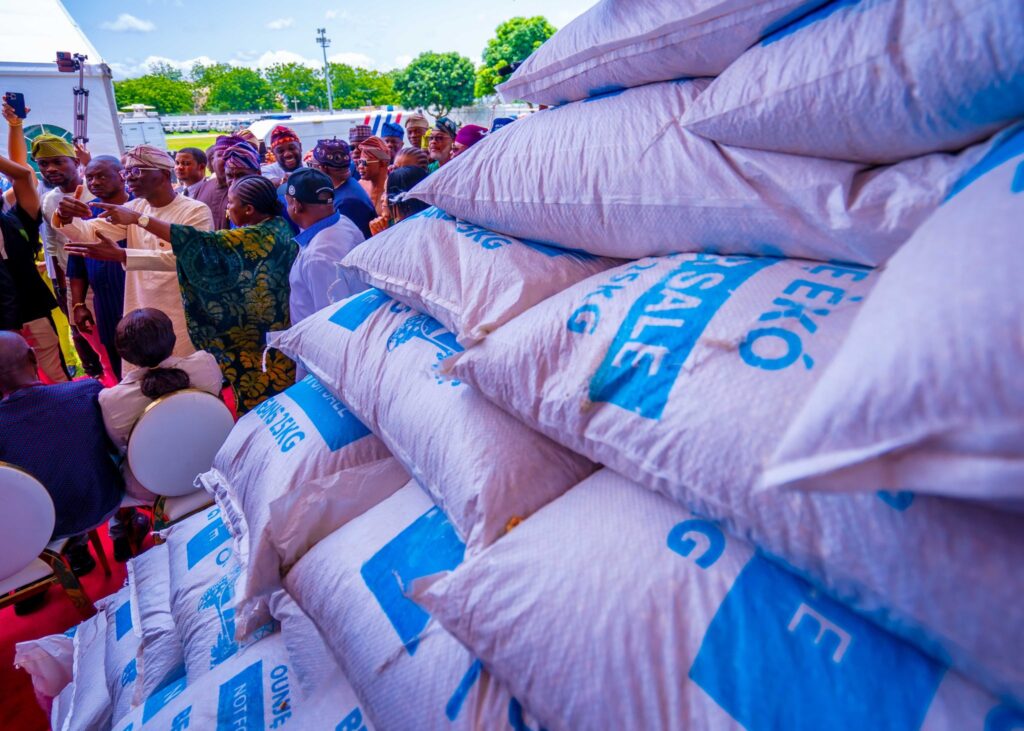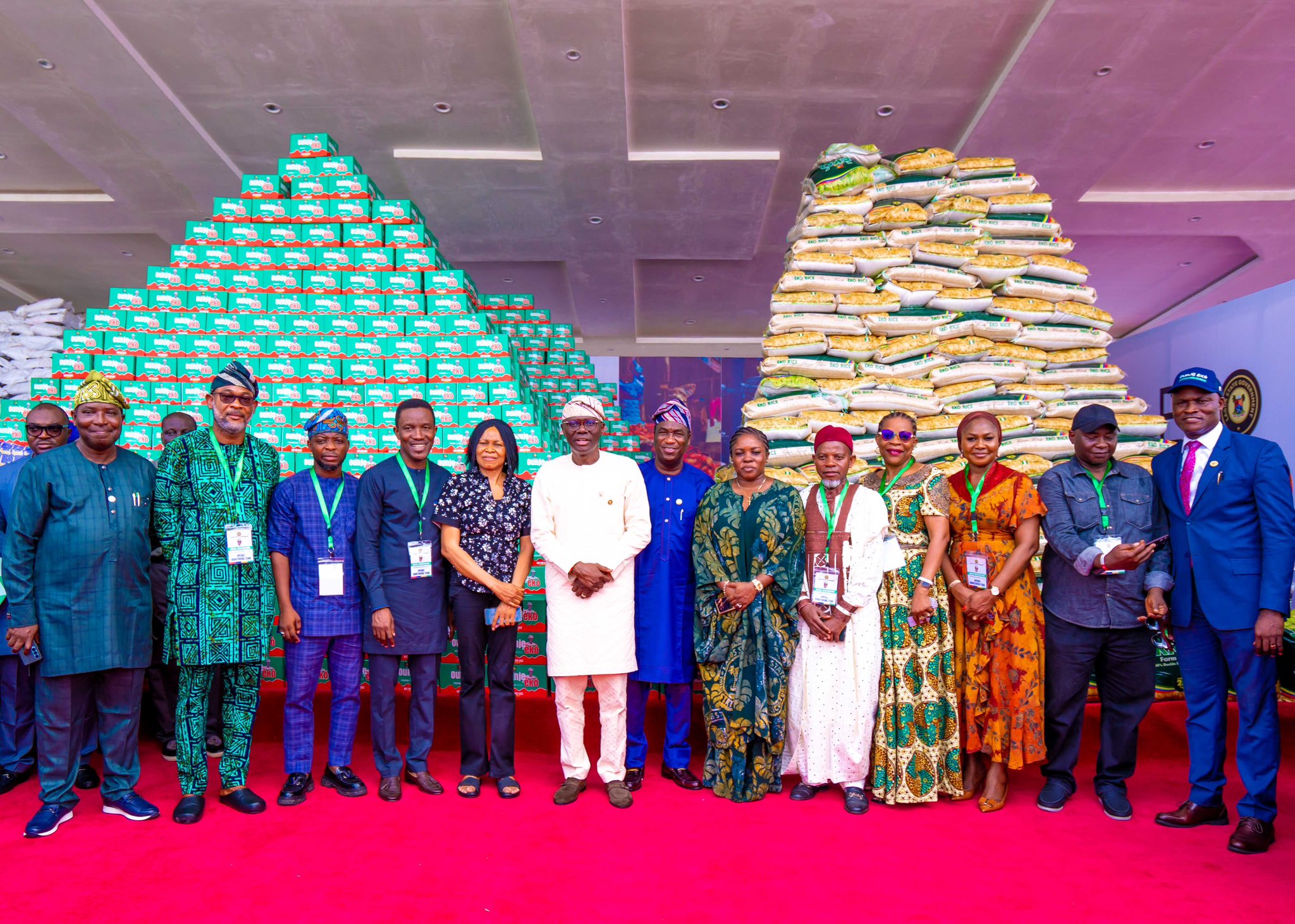…To Provide Food Security to Vulnerable Families in the State
The Lagos State government is set to distribute food items to 500,000 households in the state through unions and local governments.

Governor Babajide Sanwo-Olu said this on Wednesday while giving an update on the intervention the state embarked on to ameliorate the economic hardship on the people occasioned by the removal of fuel subsidy and the depreciating value of naira.
Speaking at Alausa in Ikeja, Sanwo-Olu said, “When we announced during my last media chat in February, I said we were setting up a lot of verticals where we can help and assist our citizens to be able to access food at a cheaper rate and be able to give succour to our citizens in health, education, food security and all areas where we have social interactions with our citizens. It sounded as if it was just a promise that we were making and would not be able to keep.

“I want to tell all of us here today that in the last six to eight weeks that work has actually started concurrently in all of these areas that I have mentioned.
But the big one that we are here to launch is our attempt to touch directly about 500,000 households.
In the last six weeks, we have gone ahead to package foodstuffs, which will be distributed through the local governments, community development associations, religious bodies and all various stakeholders that we have and we will ensure it gets to the vulnerable in our society, that is what we have demonstrated here today.”
Speaking on the ‘Ounje Eko’ initiative of the government where food items are sold at discounted prices, the governor said, “We created 59 makeshift markets outside of the regular markets out of our 57 local government and local council development areas and made it Sunday-Sunday market.

“And we did promise you that we would be selling food at a minimum of 25 per cent discount, you have kept faith with us on a Sunday by Sunday basis.”

Warning against hoarding, he said, “Please, once they send these things to you, you’re not meant to hoard them or share them among your groups. The items are supposed to be for the vulnerable people who truly need them.”
